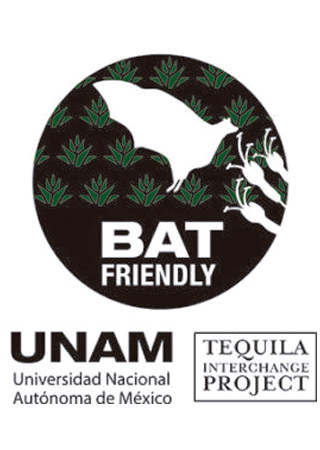In Mexico, tequila with the bat-friendly label is the sweetest tequila, because it saves bats and agaves, two threatened and interrelated species
He is about to end up run over, his mother saves himIn Mexico, tequila with the bat-friendly label is the sweetest tequila, because it saves bats and agaves, two threatened and interrelated species
Il connection between tequila and bats it is probably not very immediate, yet there is a very close link between this alcoholic drink and the bats.
The Mexican tequila is in fact produced exclusively byagave blu (Agave tequilana) and the shorter-nosed bat (Leptonycteris yerbabuenae) is the main pollinator of the plant.
Bats jump from one agave flower to another to feed on the nectar and thus carry the pollen to other plants, allowing the plants to reproduce.
The growing popularity of tequila has led to one intensive cultivation of agave which, instead of providing more nectar for the bats, dramatically reduced the nutritional resources for these animals.
Tequila producers, in fact, in an attempt to increase the sugar content of the agave, they cut the flowers of the plant before these can be pollinated, putting the bats in trouble.
In addition, agave crops are populated by clones of mother plants, rather than from specimens born from seed. This initially brought some benefits to farmers, but after many generations there was one rapid loss of genetic diversity because the DNA of cultivated plants is essentially the same.
The loss of genetic variability the resistance of the plants has decreased over the years and, in the late 90s, agave crops were decimated by pest-induced diseases, resulting in further resource losses for the shorter-nosed bat.
It is believed that up to 40% of agave plants in Mexico today are sick or dying, and habitat destruction is putting The survival of bats with shorter snouts is at risk, which in 2014 was classified as an endangered species.
For over 20 years, Dr. Rodrigo Medellín, also known as the "Bat Man of Mexico", has been leading considerable efforts for the conservation of bats, waging battles to ask farmers for let part of the crops bloom so that they can be pollinated.
Dr. Medellín's commitment has drawn the attention of academics, producers, distillers, bottlers, marketers and bartenders who have decided to join forces to produce bat-friendly tequila in partnership with the non-profit organization Tequila Interchange Project, for the purpose of defend the agave and its pollinators.

The project has involved tequila growers and producers and convinced them that it is in their best interest to make some of their plants bloom in exchange for the “bat-friendly tequila” label.
Tequila exports to Mexico have in fact more than doubled since 1995, reaching 197,9 million liters sold abroad in 2016, an all-time high.
In front of the growing demand for tequila, the producers have understood that it is essential to improve the system and that sustaining the vitality of the blue agave is essential for the sector to survive.
Allowing 5% of plants to bloom is not only useful for bats, but for the agaves themselves, which can thus be pollinated and reproduce. This would allow to restore the genetic variability of the plants, which would return to health.
For the project to work, however, the collaboration of growers and producers is not enough: the success of the label will largely depend on consumers and the bartenders. It is imperative that bartenders inform their customers about the project and that consumers request bat-fliendly tequila.
Read also:
- Nora Lifschitz, the Batwoman who saves bats (PHOTO)
- DIY eco-bats for Halloween
- How and why to attract bats to your garden
Tatiana Maselli


























